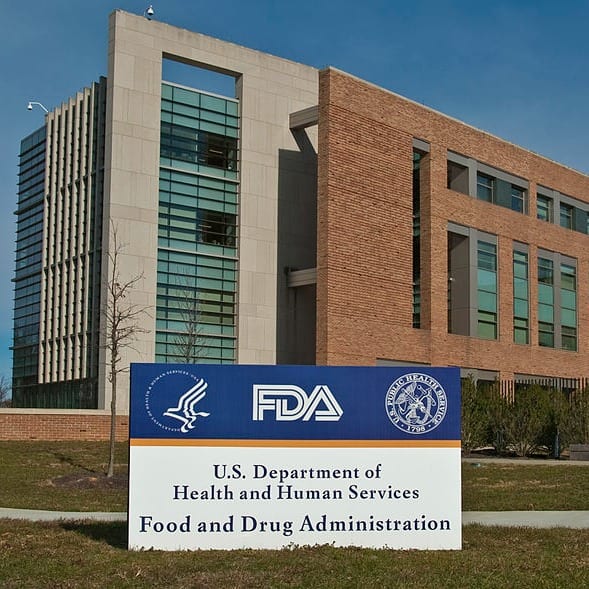
photo credit via Wikimedia Commons |
On February 1, the Virginia House Agriculture Sub-Committee quietly killed an amended version of the Virginia Food Freedom Act (HB 619) by tabling the bill during a subcommittee hearing. The amended version of HB 619 would have changed Virginia’s cottage food law to allow the unregulated sale direct to consumers of baked goods, such as pumpkin pie, that require time or temperature control after preparation—a significant step in expanding business for home kitchens operating under that law.
What was unusual about the subcommittee’s action was that one week earlier, on January 25, it had voted to send the exact same bill on to the full House Agriculture, Chesapeake and Natural Resources Committee for consideration. After the bill passed out of subcommittee, its chances for passing looked good, but then an official from the Virginia Department of Agriculture and Consumer Services (VDACS) contacted Sub-Committee Chair Barry Knight requesting a rehearing on the bill.
VDACS did not have a representative attend the February 1 hearing but sent written testimony opposing HB 619, which included a statement that the bill violated the FDA Food Code’s requirements on time and temperature control. The FDA Food Code is voluntary and does not have to be adopted by states, raising the question as to who makes law in Virginia on the sale of baked goods requiring time and temperature control—the state legislature or FDA? The answer appears to be FDA.
In FDA’s words, “The Food Code is a model for safeguarding public health and ensuring food is unadulterated and honestly presented when offered to the consumer. It represents best advice for a uniform system of provisions that address the safety and protection of food offered at retail and in food service.” 1 The Food Code is revised every four years with the latest version of the Food Code being 2013; Virginia has adopted the 2005 revision in its regulations. All 50 states have adopted the Food Code in one form or another.
Virginia regulations, in following the FDA Food Code, call for regulation of foods sold at retail—including baked goods—that require time and temperature control after preparation, but this is something the legislature can change at any time without being in violation of federal law. This is what happened in Wyoming in 2015 when the legislature carved out an exemption to its Food Code in allowing the unregulated sale of baked goods and many other foods requiring time and temperature control by home kitchens, farms and ranches direct to the final consumer.
A step to take in figuring out why VDACS would oppose HB 619 would be to follow the money—for starters, money given by FDA under a funding opportunity titled “Advancing Conformance with the Voluntary National Retail Regulatory Program Standards” (Retail Program Standards). 2
The Retail Program Standards are a set of criteria designed by FDA to help regulators administer the Food Code. The criteria include an inspection program based on Hazard Analysis Critical Control Points (HACCP) principles as well as compliance and enforcement programs for regulators. FDA has provided funding the last two years for those adopting and complying with the Retail Standards criteria. According to the Association of Food and Drug Officials (AFDO), VDACS applied for and received a Retail Program Standards grant from FDA in 2015. 3
The question is this: would the passage of HB 619 have violated the terms of the grant 4 or of any other agreement between the two agencies? If so, the agreement is in effect making law (prohibiting an exception to regulation for producer-to-consumer direct sales of time and temperature controls foods like the Wyoming legislature created) and standing the principles of federalism and separation of powers on their heads. Here, a federal bureaucracy is making law, not the state legislature.
Grants from federal agencies to state agencies and federal-state agency cooperative agreements can amount to an end-around on the process of representative government. What happened with HB 619 could be a sign of what is to come. The FDA Food Safety Modernization Act (FSMA) gives the FDA power to build integrated national food safety in partnership with state and local governments. FDA will use this power to dictate to states what their own laws will be. If the state legislatures don’t exercise effective oversight 5 over agreements between FDA and state agencies, states’ Tenth Amendment powers to regulate food and other commerce within their borders will continue to diminish. Handcuffing state legislatures through distribution of federal money to state agencies further tramples on both the state and federal constitutions.
The Farm-to-Consumer Legal Defense Fund (FTCLDF) has opposed FSMA and continues to warn about the dangers it presents to local food systems along with the unconstitutionality of agreements that could be used to implement FSMA. FTCLDF works to protect family farms and artisan food producers from the potential threat to their livelihood from burdensome regulations. Your donations help. To make a contribution online, go to www.farmtoconsumer.org/donate. Prefer to receive a tax deduction? Use this link: www.bit.ly/NFG4FTC
Footnotes
1 FDA, Food Code 2013, posted online at http://www.fda.gov/Food/GuidanceRegulation/RetailFoodProtection/FoodCode/ucm374275.htm
2 Department of Health and Human Services, “Limited Competition: Advancing Conformance with the Voluntary National Retail Food Regulatory Program Standards (VNRFRPS) (U18)”, Announcement RFA-FD-15-018, posted online at https://grants.nih.gov/grants/guide/rfa-files/RFA-FD-15-018.html
3 Association of Food and Drug Officials (AFDO), “Year 2 (FY 2015) Retail Standards Awardees”, posted online at http://afdo.org/page-1856539
4 The FDA federal standards grants were for relatively small amounts of money; the issue is not the size of the grant but rather its terms and obligations imposed on VDACS.
5 A good place for states to start more effective oversight would be to pass a bill similar to the law that went into effect last year in Texas. The new law requires the Texas State Department of Health to post details of any grant or agreement with FDA on its website and to consider requests from any “interested person” that the department decline to receive future funding under any grant or contract. Instead of state deregulation increasing their chances of prospering, local food producers will be looking at a one-size-fits-all regulatory scheme under FDA increasing their chances of going out of business.
Other Links of Interest
FDA – Existing Grant & Cooperative Agreement Programs
AFDO – Press Release 8/3/2015 (PDF)
YOUR FUND AT WORK
 Services provided by FTCLDF go beyond providing legal representation for members in court cases.
Services provided by FTCLDF go beyond providing legal representation for members in court cases.
Educational and Political Action Services also provide an avenue for FTCLDF to build grassroots activism to create the most favorable regulatory climate possible. In addition to advising on bill language, FTCLDF supports favorable legislation via action alerts, social media outreach, and the online petition service.
You can help FTCLDF by becoming a member or donating today.

 Anyone wanting to make a contribution to support the work of FTCLDF can make a donation online or send a check to:
Anyone wanting to make a contribution to support the work of FTCLDF can make a donation online or send a check to:
FTCLDF
8116 Arlington Blvd, # 263
Falls Church, VA 22042
Prefer to make a tax-deductible donation? Donate online at bit.ly/NFG4FTC.
You may also contact us by email at [email protected] or call 703-208-FARM (3276). Thanks for your support.